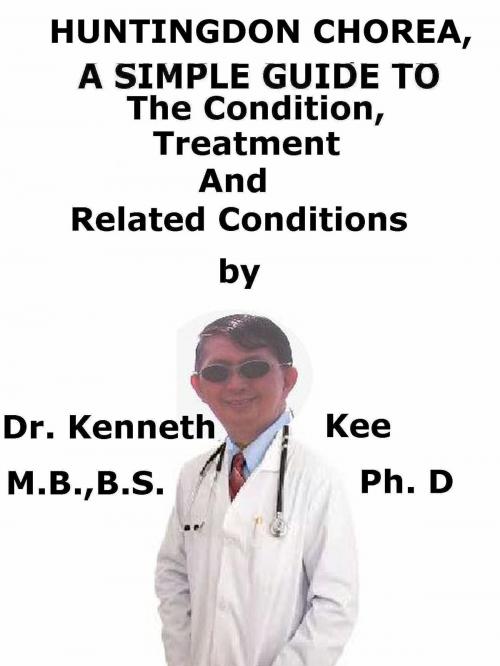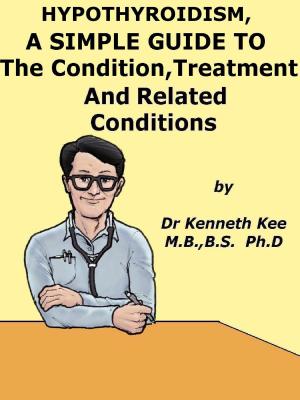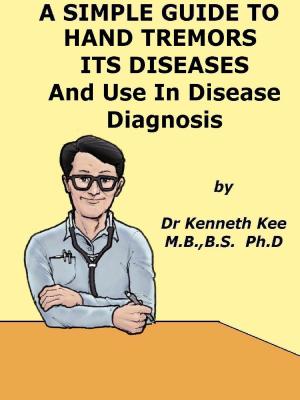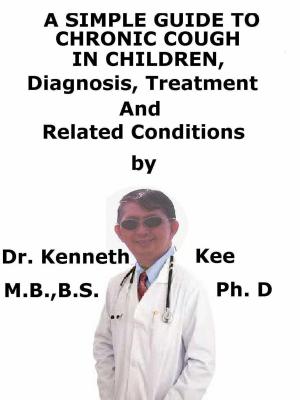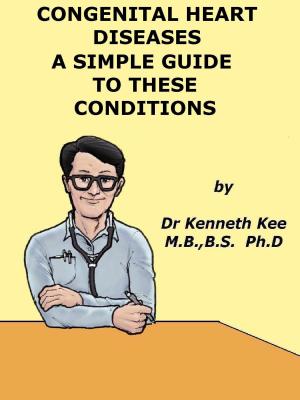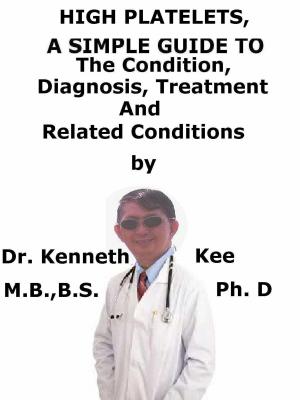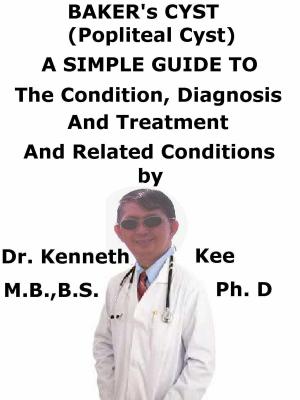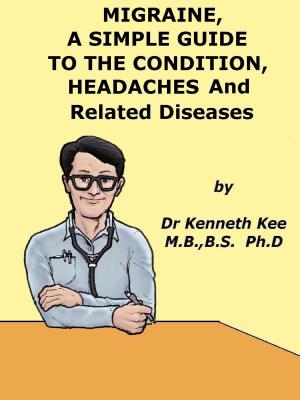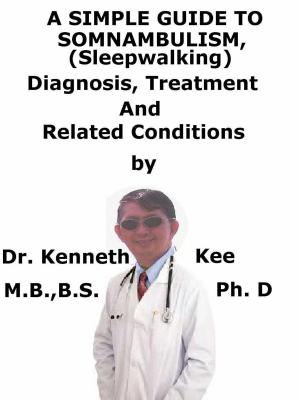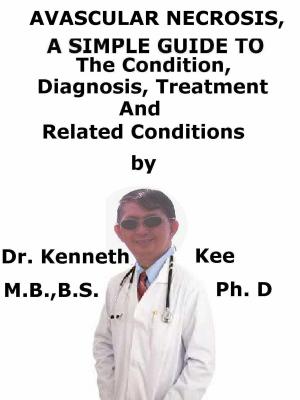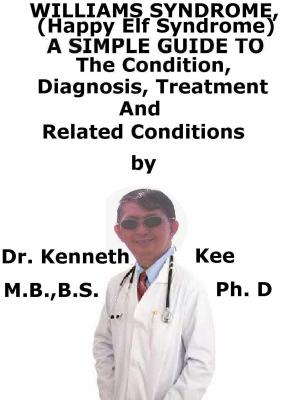Huntington’s Chorea, A Simple Guide To The Condition, Treatment And Related Conditions
Nonfiction, Health & Well Being, Health, Ailments & Diseases, Nervous System & the Brain, Medical, Specialties, Internal Medicine, Neurology| Author: | Kenneth Kee | ISBN: | 9781370905157 |
| Publisher: | Kenneth Kee | Publication: | December 17, 2016 |
| Imprint: | Smashwords Edition | Language: | English |
| Author: | Kenneth Kee |
| ISBN: | 9781370905157 |
| Publisher: | Kenneth Kee |
| Publication: | December 17, 2016 |
| Imprint: | Smashwords Edition |
| Language: | English |
Huntington's Chorea is a progressive degenerative disease affecting basal ganglia characterized by choreiform movements and mental deterioration.
The cause is believed to be genetic with autosomal dominance transmission from parent to offspring with full penetrance.
In Huntington's Chorea, there are widespread degeneration changes with cell loss and reactive gliosis mainly in the cerebral cortex, basal ganglia and caudate nucleus.
There is deficiency of gamma-aminobutyric acid (GABA).
Physical symptoms of Huntington's disease can begin at any age from infancy to old age but usually begin between 30 and 45 years of age.
1. Choreiform movements
2. Emotional disturbance with mental changes
3. Cognitive impairment
The diagnosis of Huntington's Chorea involve
1. Typical history of choreiform movements, emotional and mental impairment with family history.
2. Physical and neurological examinations for brain neurological deficit.
3. CT scan or MRI may show selective atrophy of the caudate nucleus helping to differentiate Huntingdon's Chorea from other causes such as dementia.
There is no cure for Huntington's Chorea but symptomatic control of choreiform movements with haliperidol or chlorpromazine may help.
Tetrabenazine was approved in 2008 for treatment of chorea in Huntington's disease in the US.
Other drugs that help to reduce chorea include neuroleptics and benzodiazepines.
Newer agents, such as quetiapine, clozapine, olanzapine, and risperidone, are preferred to older agents because of the lower incidence of extrapyramidal side effects and the decreased risk for tardive syndromes.
Results of some studies have suggested that valproic acid and clonazepam may be effective in the treatment of chorea.
Patients with Huntington's disease may see a physical therapist for non-invasive and non-medication-based ways of managing the physical symptoms.
TABLE OF CONTENT
Introduction
Chapter 1 Huntington’s Chorea
Chapter 2 More Facts of Huntington’s Chorea
Chapter 3 Treatment of Huntington’s Chorea
Chapter 4 Cerebral Palsy
Chapter 5 Parkinson's Disease
Chapter 6 Dementia
Chapter 7 Seizures
Epilogue
Ode to Huntington's Chorea
Huntington's Chorea is a progressive degenerative brain condition
The affected basal ganglia causes choreiform movements and mental deterioration
It is adult-onset, autosomal dominant inherited disorder
Most adult-onset Huntingtons inherit the gene from their mothers
The juvenile Huntingtons inherit the gene from their fathers
Inheritance through the father can lead to the disease onset earlier
The most important symptom is the choreiform movements
There is usually emotional disturbance and cognitive impairment
Diagnosis is from the history of chorea and poor mental abilities
CT scan or MRI may show the caudate nucleus having selective atrophy
There is no cure for Huntington's Chorea
Mental impairment may finally lead to dementia
Treatment is with medications to control the symptoms
Psychotic drugs are given for psychosis and behavioral problems
Drugs that help to reduce chorea include Tetrabenazine
Other drugs that help include neuroleptics and benzodiazepines
-An original poem by Kenneth Kee
Huntington's Chorea is a progressive degenerative disease affecting basal ganglia characterized by choreiform movements and mental deterioration.
The cause is believed to be genetic with autosomal dominance transmission from parent to offspring with full penetrance.
In Huntington's Chorea, there are widespread degeneration changes with cell loss and reactive gliosis mainly in the cerebral cortex, basal ganglia and caudate nucleus.
There is deficiency of gamma-aminobutyric acid (GABA).
Physical symptoms of Huntington's disease can begin at any age from infancy to old age but usually begin between 30 and 45 years of age.
1. Choreiform movements
2. Emotional disturbance with mental changes
3. Cognitive impairment
The diagnosis of Huntington's Chorea involve
1. Typical history of choreiform movements, emotional and mental impairment with family history.
2. Physical and neurological examinations for brain neurological deficit.
3. CT scan or MRI may show selective atrophy of the caudate nucleus helping to differentiate Huntingdon's Chorea from other causes such as dementia.
There is no cure for Huntington's Chorea but symptomatic control of choreiform movements with haliperidol or chlorpromazine may help.
Tetrabenazine was approved in 2008 for treatment of chorea in Huntington's disease in the US.
Other drugs that help to reduce chorea include neuroleptics and benzodiazepines.
Newer agents, such as quetiapine, clozapine, olanzapine, and risperidone, are preferred to older agents because of the lower incidence of extrapyramidal side effects and the decreased risk for tardive syndromes.
Results of some studies have suggested that valproic acid and clonazepam may be effective in the treatment of chorea.
Patients with Huntington's disease may see a physical therapist for non-invasive and non-medication-based ways of managing the physical symptoms.
TABLE OF CONTENT
Introduction
Chapter 1 Huntington’s Chorea
Chapter 2 More Facts of Huntington’s Chorea
Chapter 3 Treatment of Huntington’s Chorea
Chapter 4 Cerebral Palsy
Chapter 5 Parkinson's Disease
Chapter 6 Dementia
Chapter 7 Seizures
Epilogue
Ode to Huntington's Chorea
Huntington's Chorea is a progressive degenerative brain condition
The affected basal ganglia causes choreiform movements and mental deterioration
It is adult-onset, autosomal dominant inherited disorder
Most adult-onset Huntingtons inherit the gene from their mothers
The juvenile Huntingtons inherit the gene from their fathers
Inheritance through the father can lead to the disease onset earlier
The most important symptom is the choreiform movements
There is usually emotional disturbance and cognitive impairment
Diagnosis is from the history of chorea and poor mental abilities
CT scan or MRI may show the caudate nucleus having selective atrophy
There is no cure for Huntington's Chorea
Mental impairment may finally lead to dementia
Treatment is with medications to control the symptoms
Psychotic drugs are given for psychosis and behavioral problems
Drugs that help to reduce chorea include Tetrabenazine
Other drugs that help include neuroleptics and benzodiazepines
-An original poem by Kenneth Kee
